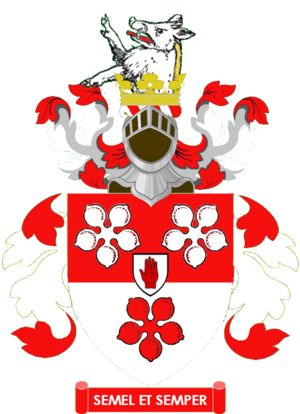James Swinburne facts for kids
Sir James Swinburne (born February 28, 1858 – died March 30, 1958) was a very important British electrical engineer and inventor. He was also a successful manufacturer. Born in Inverness, Scotland, he came from a famous family in Northumberland, England.
After studying at Clifton College, he started working at a factory that made train engines in Manchester. Later, he moved to a company in Tyneside, where he became very interested in electricity. Sir James is often called the "Father of British Plastics." He completely changed the way plastics were made and used across Europe and in Britain.
Sir James was a leading expert in the electrical world. He even worked on the very first electric lightbulb. He also created many new words that we still use in electricity today. He was a member of the Institution of Electrical Engineers (IEE) for an amazing 73 years! He was even the president of this group from 1902 to 1903. In 1906, he became a Fellow of the Royal Society, which is a big honor for scientists. He also joined the Faraday Society and was its president from 1909 to 1911. For a short time, he also studied thermodynamics, which is about heat and energy.
His work with plastic started when he learned about a material called phenol formaldehyde. Sir James was so excited about what this material could do that he started a company called Fireproof Celluloid Syndicate Limited. This company focused on researching and selling the new plastic. Later, Sir James and another inventor named Leo Baekeland started the Damard Lacquer Company. This company eventually became Bakelite Limited, which made a famous early plastic called Bakelite. Sir James was the chairman of Bakelite Limited and later became its honorary president in 1948.
In 1934, Sir James became the 9th Baronet of Capheaton in Northumberland, taking over from a relative. He lived to be very old, passing away just one month after his 100th birthday.
Contents
A Pioneer in Electricity
Sir James Swinburne made many important contributions to the world of electricity. He was involved in the early development of electric lights. He also helped create new terms and ideas that shaped the electrical industry. His long membership and leadership in major engineering groups showed how dedicated he was.
Leading Electrical Organizations
Sir James was a key figure in several important scientific and engineering groups.
- He was part of the Institution of Electrical Engineers (IEE) for 73 years. This is a very long time!
- He served as the president of the IEE from 1902 to 1903.
- In 1906, he was honored as a Fellow of the Royal Society. This is a special title given to top scientists.
- He also led the Faraday Society as its president from 1909 to 1911.
The "Father of Plastics"
Sir James Swinburne played a huge role in the invention and growth of the plastics industry. He saw the potential in new materials like phenol formaldehyde. His work helped create some of the first widely used plastics.
Starting Plastic Companies
Sir James was not just an inventor; he was also a smart businessman.
- He formed Fireproof Celluloid Syndicate Limited to explore new plastic materials.
- He teamed up with Leo Baekeland to create the Damard Lacquer Company.
- This company later became Bakelite Limited, a very famous name in early plastics.
- Sir James was the chairman and later the honorary president of Bakelite Limited.
His Family
Sir James Swinburne had four children from two marriages.
|
His children were:
- Anthony Swinburne, born in 1887
- Spearman Charles Swinburne, born in 1893
- Ida Swinburne, born in 1899
- Marjorie Swinburne, born in 1904
His Books
Sir James Swinburne also wrote several books about his work and ideas.
- Practical electrical units popularly explained : with numerous illustrations and remarks (published in London in 1883). This book helped explain electrical units in a simple way.
- Entropy; or, Thermodynamics from an engineer's standpoint, and the reversibility of thermodynamics (published in Westminster in 1904). This book was about heat and energy, written for engineers.
 | Sharif Bey |
 | Hale Woodruff |
 | Richmond Barthé |
 | Purvis Young |


